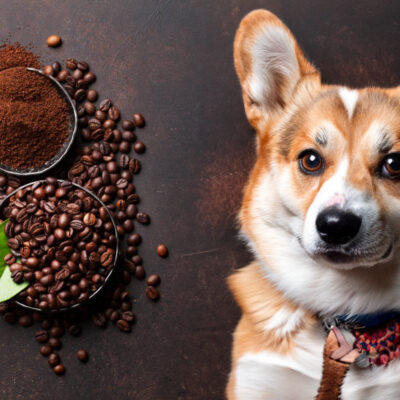We all know that dogs are scavengers by nature, but is it safe for them to snack on edamame beans? Before you let your pup indulge in this tasty treat, you should learn more about the potential risks and benefits of feeding edamame beans to your canine companion. In this blog post, we’ll explore the answer to the question: “Can your pooch snack on edamame beans?”
What are edamame beans?
Edamame beans are young soybeans that are harvested before they fully ripen. They are popular in Asian cuisine and have gained popularity in Western countries as well. These beans are typically sold frozen or fresh in their pods.
What makes edamame beans unique is their vibrant green color and their mild, slightly sweet flavor. They have a firm texture and are often enjoyed as a snack or included in various dishes such as salads, stir-fries, and soups.
Edamame beans are not only tasty, but they also offer several nutritional benefits. They are rich in protein, fiber, and various vitamins and minerals. They are particularly high in folate, iron, vitamin K, and manganese. Additionally, they are low in fat and calories, making them a nutritious option for both humans and their furry friends.
When feeding edamame beans to your dog, it’s important to do so in moderation and make sure they are fully cooked. The shells should be removed, as they can be difficult for dogs to digest. Providing your pup with a few edamame beans as an occasional treat can be a healthy and enjoyable experience for both of you.
Nutritional benefits of edamame beans
Edamame beans are not only a tasty snack for humans, but they also offer numerous nutritional benefits for our furry friends. These young soybeans are packed with protein, fiber, vitamins, and minerals that can contribute to your dog’s overall health and well-being.
One of the standout nutritional benefits of edamame beans is their high protein content. Protein is essential for building and repairing tissues, supporting the immune system, and maintaining a healthy coat and skin for your pup. Additionally, the fiber in edamame beans can aid in digestion and promote regular bowel movements.
Edamame beans are also a great source of essential vitamins and minerals. They contain folate, which plays a crucial role in cell division and the formation of red blood cells. The iron in edamame beans helps carry oxygen throughout the body, while vitamin K supports bone health and blood clotting. Finally, the manganese in these beans contributes to healthy bone formation and metabolism.
It’s important to note that while edamame beans can offer nutritional benefits to dogs, they should be given in moderation and prepared correctly. Consult with your veterinarian before introducing edamame beans into your dog’s diet, and always remove the shells before serving them. By incorporating edamame beans into your dog’s diet as an occasional treat, you can provide them with a tasty and nutritious snack option.
Can dogs eat edamame beans?
You may be wondering if your furry friend can join you in snacking on some edamame beans. Well, the answer is a bit complicated. While edamame beans can provide nutritional benefits for dogs, there are some important considerations to keep in mind.
First and foremost, it’s crucial to consult with your veterinarian before introducing edamame beans into your dog’s diet. Every dog is unique, and your vet can provide personalized advice based on your dog’s specific health needs.
One of the main concerns with feeding edamame beans to dogs is their potential to cause digestive issues. The shells can be difficult for dogs to digest and may lead to stomach upset or blockages. Therefore, it’s crucial to remove the shells before serving them to your pup.
Additionally, edamame beans should only be given in moderation as a treat, not as a primary food source. While they are rich in protein, fiber, and various vitamins and minerals, an excessive intake of edamame beans could lead to an imbalance in your dog’s diet.
Possible risks and concerns with feeding edamame beans to dogs
While edamame beans can offer nutritional benefits to dogs, there are a few potential risks and concerns to be aware of. One of the main concerns is the difficulty dogs may have in digesting the shells of the edamame beans. If ingested, the shells can cause digestive issues such as stomach upset or blockages. It is crucial to remove the shells before serving them to your furry friend to prevent any potential problems.
Additionally, it is important to feed edamame beans to your dog in moderation. While they are a healthy snack option, an excessive intake of edamame beans could lead to an imbalance in your dog’s diet. As always, consult with your veterinarian before introducing any new food into your dog’s diet, including edamame beans. They can provide personalized advice based on your dog’s specific health needs and ensure that edamame beans are suitable for them.
By being aware of these potential risks and concerns and feeding edamame beans to your dog responsibly, you can provide them with a tasty and nutritious snack option.
Safe ways to feed edamame beans to dogs
When it comes to feeding edamame beans to your furry friend, there are a few safe ways to do it. Firstly, make sure that the beans are fully cooked and the shells have been removed. The shells can be difficult for dogs to digest, so it’s important to take them off before serving. You can also consider mashing or pureeing the beans to make them easier for your pup to eat.
Another safe way to feed edamame beans to your dog is by incorporating them into homemade dog treats. There are plenty of recipes available online that use edamame beans as an ingredient. Just make sure to follow the recipe carefully and avoid using any harmful ingredients such as garlic or onions.
Lastly, remember that moderation is key. While edamame beans can be a healthy and tasty snack for your dog, they should only be given in small quantities. Too much of anything can be harmful, so be sure to keep an eye on your pup’s overall diet and consult with your veterinarian if you have any concerns.
Other healthy snack alternatives for dogs
If you’re looking for healthy snack alternatives for your furry friend, there are plenty of options to choose from. Here are some delicious and nutritious treats that your dog is sure to love:
- Carrots: Carrots are low in calories and high in fiber, making them a great snack option for dogs. They also contain vitamin A, which is beneficial for their eye health.
- Blueberries: Packed with antioxidants and vitamins, blueberries make a fantastic snack for dogs. They are also a great source of fiber and can help improve digestion.
- Sweet potatoes: Sweet potatoes are rich in fiber, vitamins, and minerals. They can be cooked and served as bite-sized pieces for a tasty and healthy treat.
- Green beans: Green beans are low in calories and high in fiber. They make a great alternative to traditional dog treats and can help your pup feel fuller for longer.
- Pumpkin: Pumpkin is a great source of fiber and can help regulate your dog’s digestive system. It can be served cooked or in its pureed form as a tasty snack option.
Remember, it’s important to introduce new snacks slowly and in moderation. Always consult with your veterinarian before introducing any new food into your dog’s diet. With these healthy snack alternatives, you can ensure that your pup is getting the nutrition they need while enjoying delicious treats.










